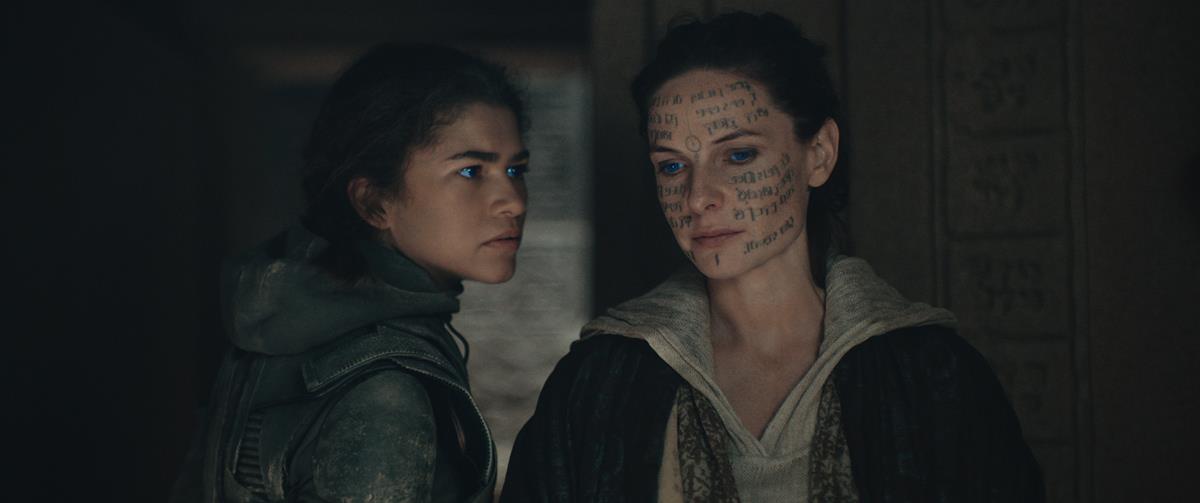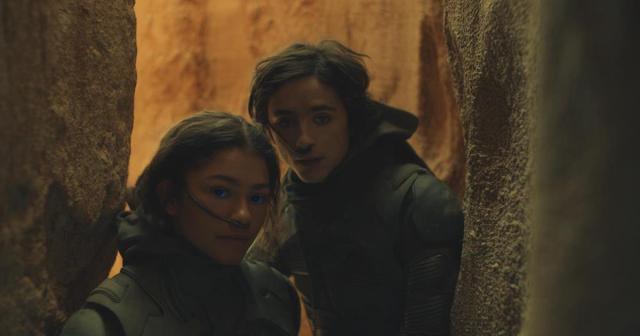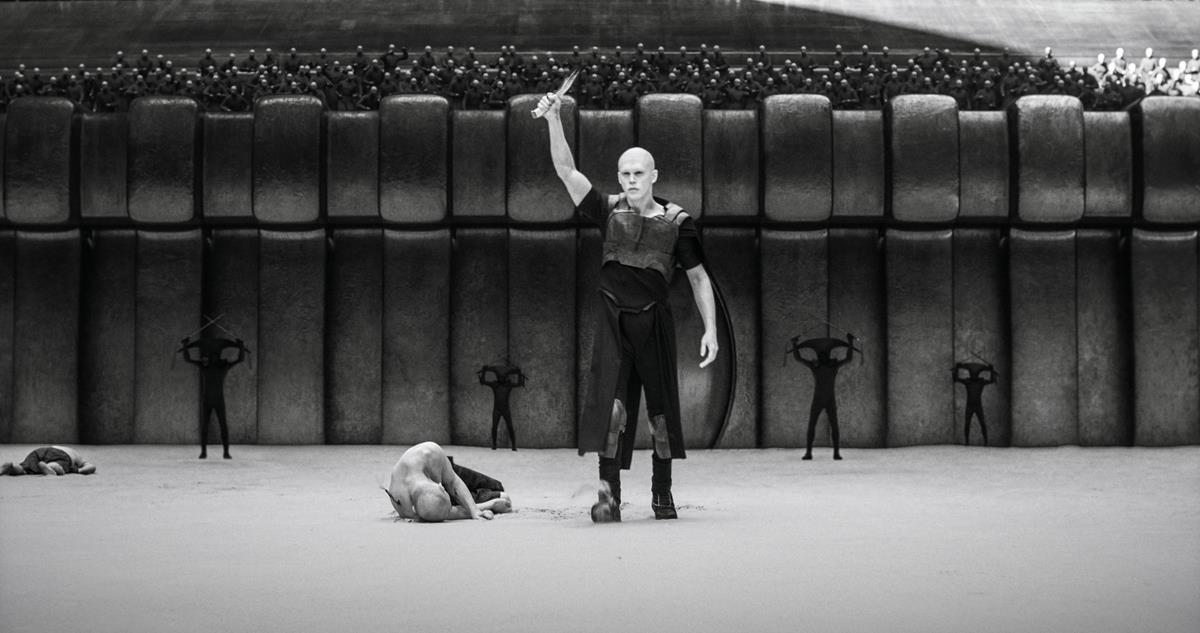
TL;DR
- Playing with physics and light for “Dune: Part Two” gave the homeland of the villainous Giedi Prime a startling black-and-white look.
- For director Denis Villeneuve, an environment that would breed the Harkonnen’s fascist culture is a planet where the sun is so bright and blinding that all color is washed out.
- DP Grieg Fraser shot the scene with infrared imagery, although this caused complications for costume design.
- The film is one of a series of recent projects that have shot using the technique, including “True Detective: North Country” and “The Zone of Interest.”
In a film awash with frames of retina-burning golden intensity the striking monochromatic scene of the gladiator fight introducing the psychopathic Feyd-Rautha (Austin Butler) stands out.
Dune: Part Two director Denis Villeneuve wanted the aesthetic of the evil Harkonnen to signify the polar opposite of the sunlit faith of the desert dwelling Fremen.
Dune author Frank Herbert had never established much information about the Harkonnen homeworld, called Giedi Prime, other than that it had been industrialized into an almost complete wasteland.
“I love how Frank Herbert shows how the psyche of the tribes of the people are influenced by the landscape,” Villeneuve told Susana Polo at Polygon. “If you want to learn about the Fremen, you just have to learn more about the desert and it will give you insight about their way of thinking, their way of seeing their world, about their culture, about their beliefs, about their religion.”
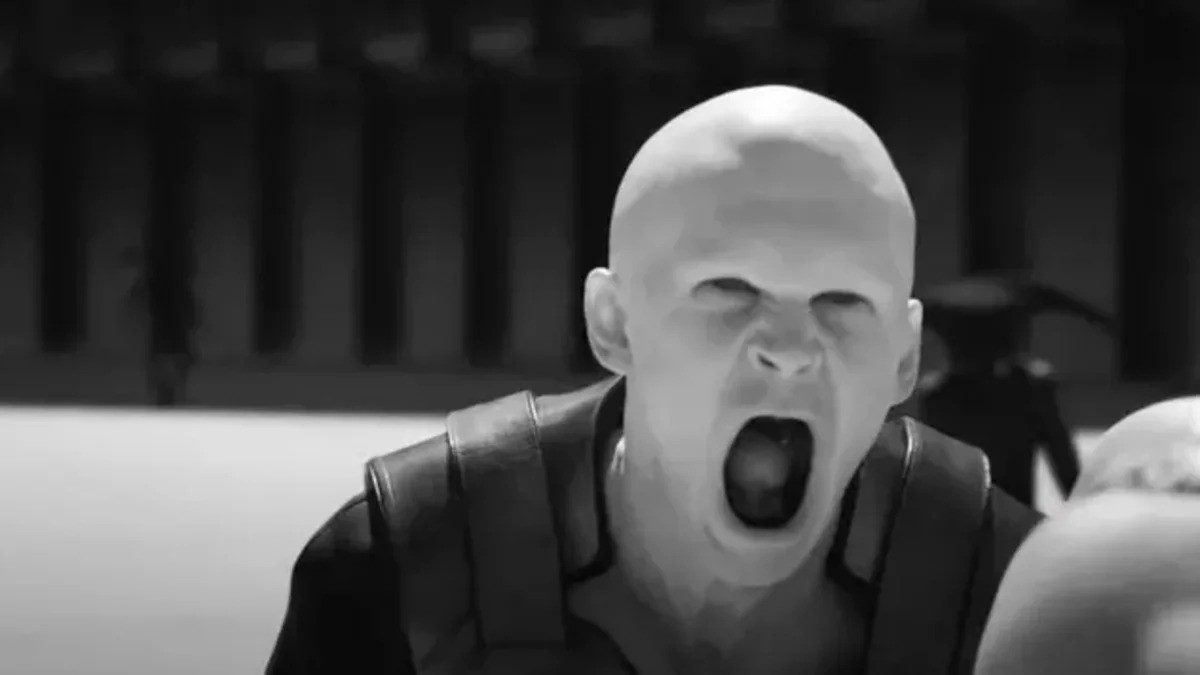
But with far fewer Harkonnen details to work with, Villeneuve was forced to improvise, and like any filmmaker, he settled on using light to tell the story — specifically the light from Giedi Prime’s sun.
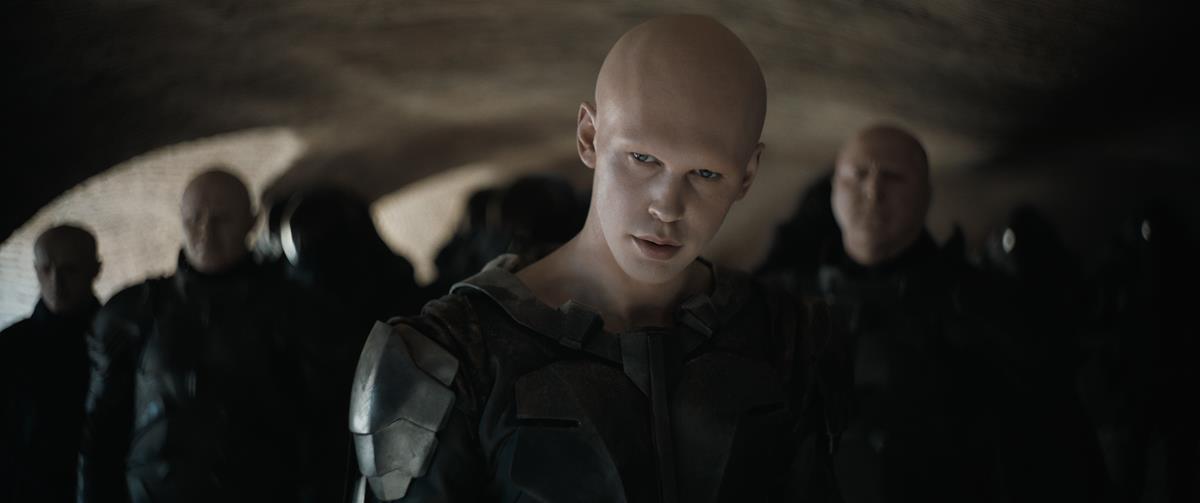
“I wanted to find something that had the same evocative power and the same cinematic power for the Harkonnens,” he said. “I wanted to be generous with their world and make sure that it will be singular, and it will inform us about where their political system is coming from; where their sensitivity, their aesthetic, their relationship with nature is coming from.”
READ MORE: Dune 2 expands Frank Herbert’s lore to give the Harkonnens their due (Polygon)
In an interview with Hoai-Tran Bui for Inverse, he added, “The idea that the sunlight, instead of revealing colors, will kill colors; that their own world will be seen in a daylight as a bleak black-and-white world, will tell us a lot about their psychology.”
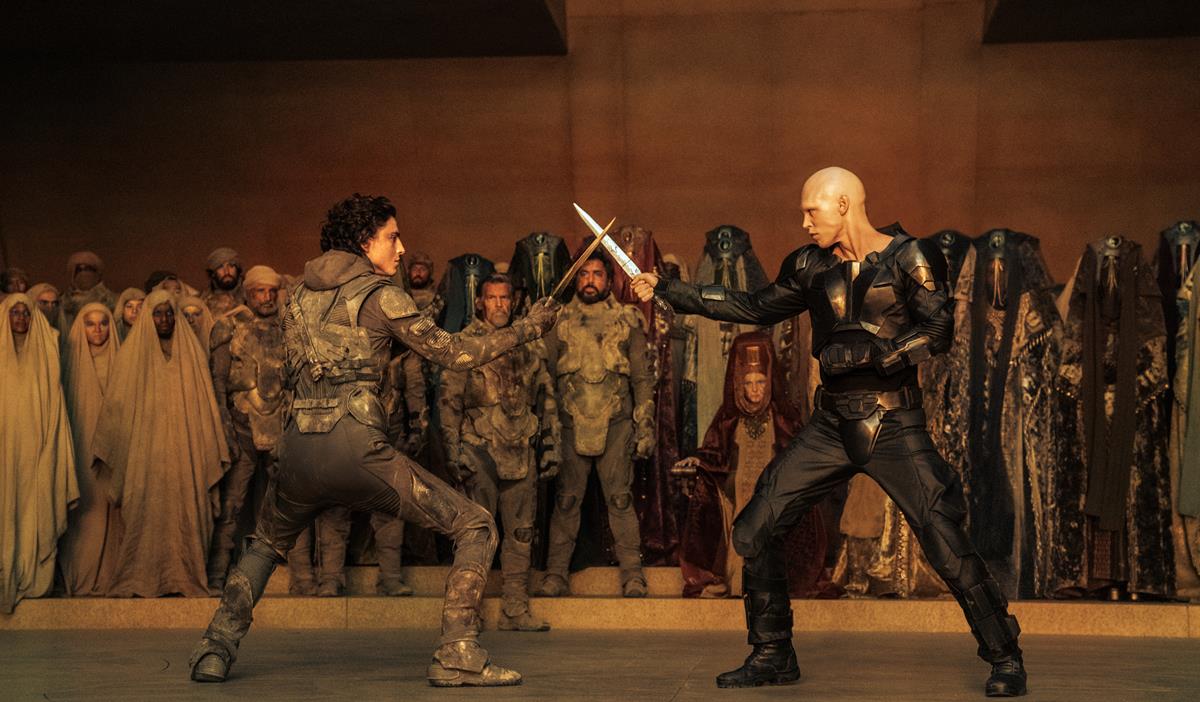
He took the idea to Australian cinematographer Greig Fraser, who won an Oscar for his work on Part One, and Fraser suggested filming the scenes using Infrared photography.
The DP had used the technique on 2012’s Zero Dark Thirty and 2016’s Rogue One: A Star Wars Story. “It’s the same light the security camera uses, and you don’t see it. So, my fascination with infrared started because our eyes can’t see it, but the camera can,” Fraser told Jazz Tangcay at Variety.
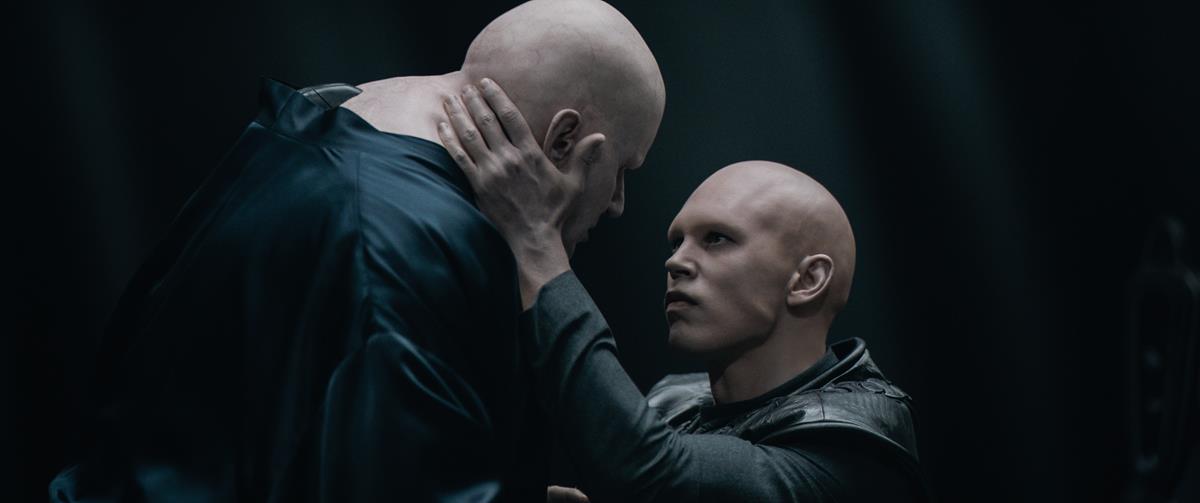
Fraser shot the Giedi Prime scenes on an Alexa LF, modified so it could only see infrared and not any visible light. Since the sun emit infrared (creating life on this planet) it felt like a suitable creative solution to depicting the life-sucking environment destroying Harkonnen.
The effect is an eerie, translucent, effect on human skin, aided by the fact that the planet’s population is bald. But by creating the in-universe rule that the sun was washing out the colors, the filmmakers created other challenges. One was, what happens when characters step from the shadows into the sun?
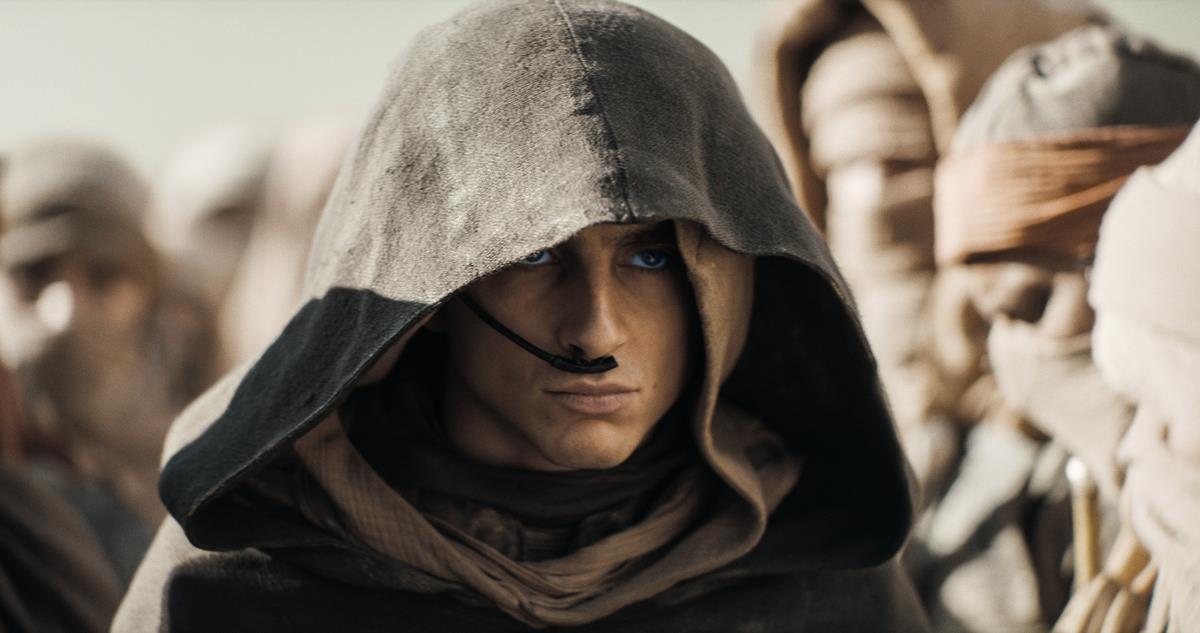
“We needed to come up with rules for what the sun does,” Fraser told Inverse. “Our rules were effectively everything that the sun hits is washed out. So it’s direct sun and it’s bounced sun.”
When inside or in the shade, characters are lit by artificial light, Fraser explained. To achieve transitions, such as when Léa Seydoux’s Lady Margot Fenring emerges from the shade into the sun during the gladiator fight, Fraser had to shoot on a 3D stereo rig. One camera filmed as normal to a full color sensor, the other aligned on the rig, shot infrared imagery.
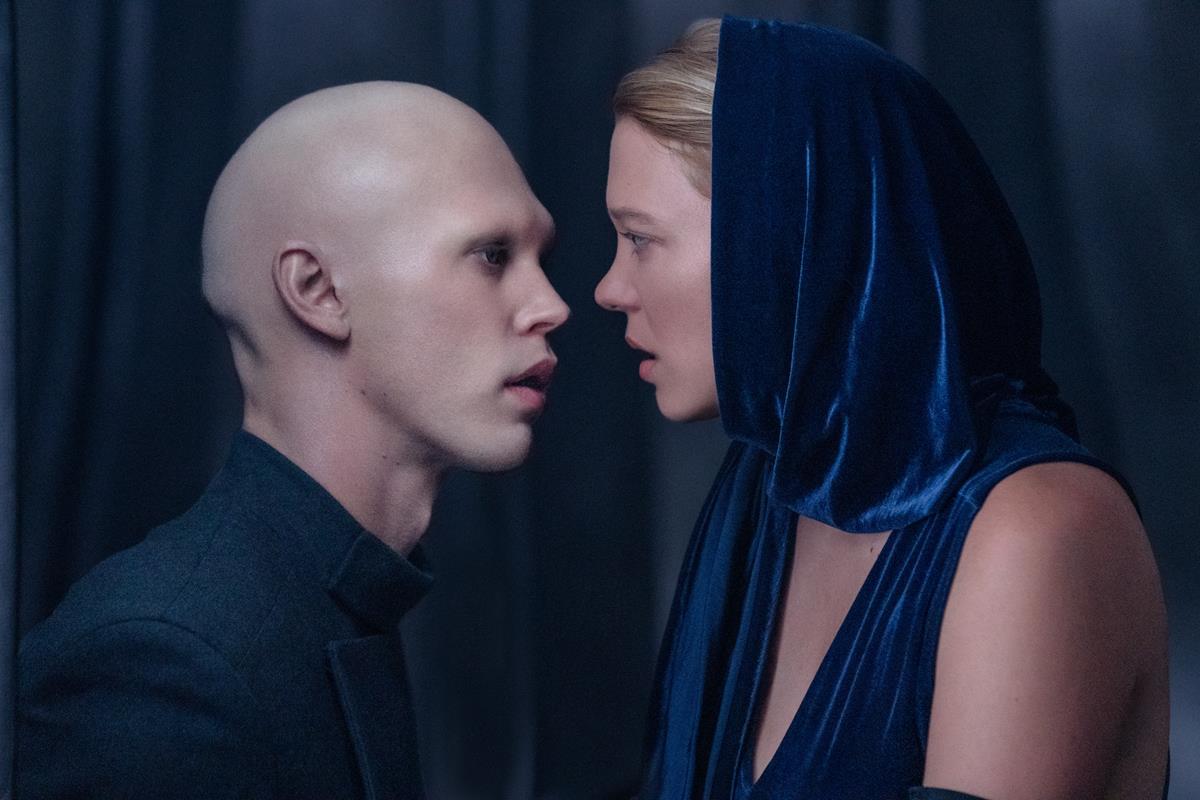
“We made sure we had lights that put out infrared for the infrared camera, and we had lights that the infrared camera couldn’t see, which were LEDs that put out visible light but don’t have infrared light. We had to have two different types of light sources on set that each camera could see separately and see differently.”
Another challenge was that when they started to shoot the photography showed up some of the costume fabrics — which were black in daylight — but appeared white under Infrared.
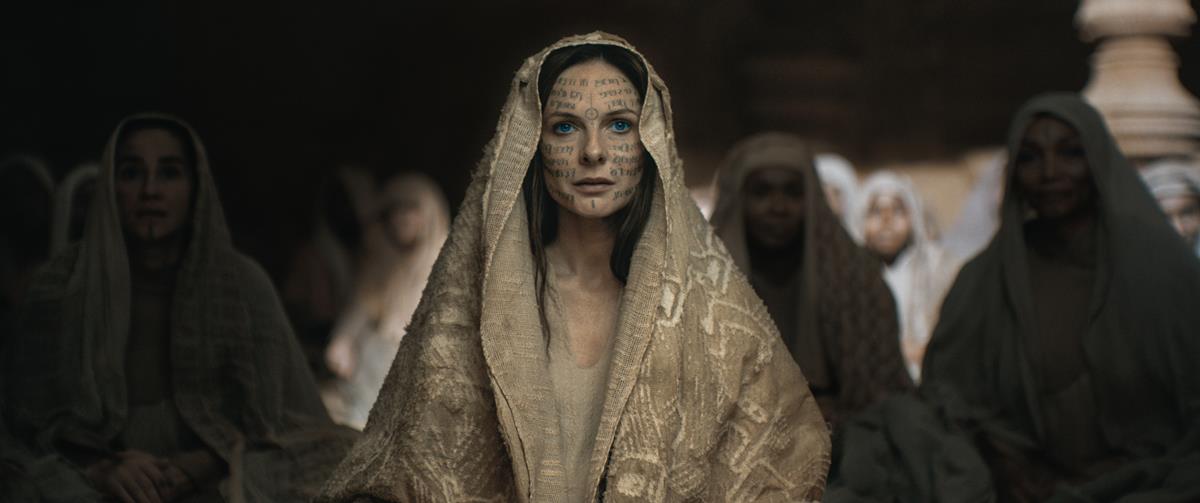
Fraser says he didn’t know why certain fabrics worked, telling Variety, “I’m sure there’s a rhyme and reason, from a material standpoint. I just know we had to do a lot of camera testing to make sure everyone was dressed in black.”
READ MORE: ‘Dune 2’: How Artisans Pulled Off Shooting the Arena Fight Scene With Infrared Technology (Variety)
The scene, which is a birthday celebration-cum-Nazi rally, also features strange ink-blot fireworks. Villeneuve told Fraser, “They’re like anti-fireworks. They suck the light out as opposed to putting the light in.” Also, to Inverse, Fraser adds, “We worked pretty hard at trying to achieve that goal, this kind of anti-explosion type of light.”
READ MORE: Why Dune 2’s Thrilling Gladiator Fight Had to Be in Black-and-White (Inverse)
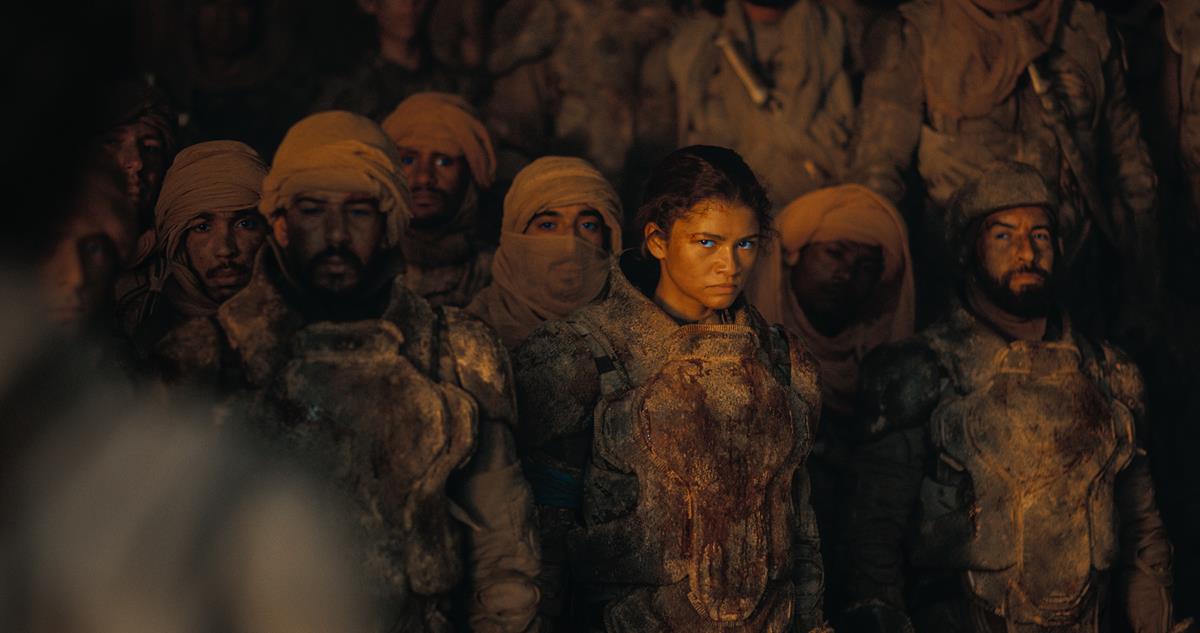
Fraser elaborated on the decision to shoot infrared in an interview for the ARRI Rental website.
“We’d been on this planet for night interiors in part one, but we’d never been outside, so we were discussing what it would look like. I did a test for Denis where the inhabitants have very pale white skin, based on the notion that there’s no visible light from the sun on Giedi Prime, only infrared light. When the characters go from inside to outside, they effectively go from normal light to infrared light,” he detailed.
“On Rogue One, ARRI Rental modified some ALEXA 65s to do exactly the same thing, and we used them as VFX cameras, lighting parts of the set with IR light that didn’t affect the main image,” he added. “We just took that a step further and used them as our main cameras for Giedi Prime. They literally only record the infrared that bounces off skin or clothes, so colors are rendered as different tones and something that looks black to the eye might look white to the camera. It meant that we had to have exterior and interior versions of the same costume for some characters.”
READ MORE: Greig Fraser ACS, ASC on “Dune: Part Two” (ARRI Rental)
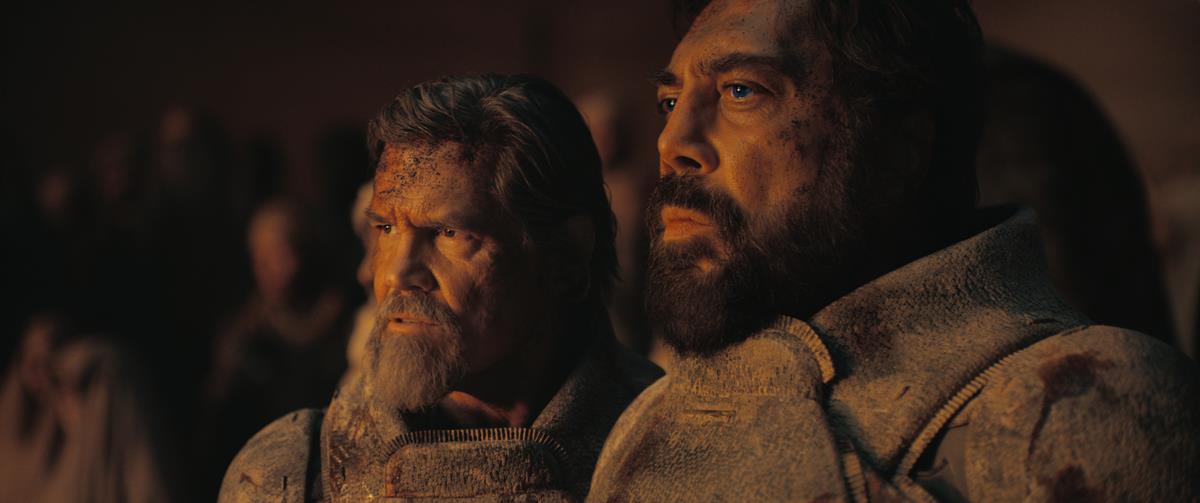
It’s worth noting that infrared shooting techniques are in vogue just now. Hoyte van Hoytema used the 3D rig technique to capture eerie sequences for Jordan Peele’s Nope, and this inspired Florian Hoffmeister to go further and shoot extensive night exteriors for the unsettling Alaska set murder mystery True Detective: North Country (also on paired Alexas, with one camera modified without a color filter and with infrared lights).
Most notably, Lucas Żal shot infrared sequences for The Zone of Interest, although here the rest of the picture is so bleak that these scenes represent hope amid the darkness.
